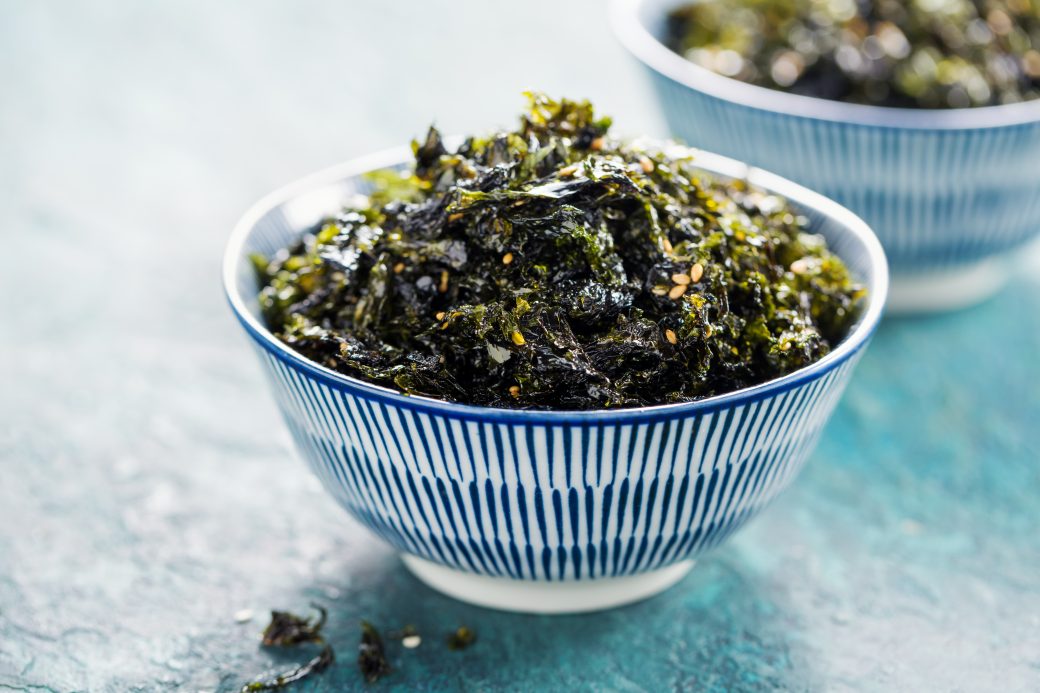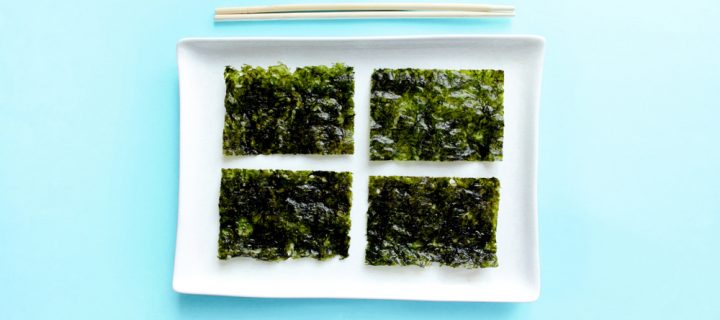Nori is the Japanese word for dried edible seaweed, and it’s been consumed for thousands of years.
Nori was eaten as a thick paste until the 1700s, when the Japanese developed a way to dry it in sheets, applying the same method they used to make writing paper.
Today, nori is made from strands of edible red algae that are shredded, pressed into ultra-thin sheets, and then dried and toasted. The best algae for making nori grows in cold, nitrogen-rich water and is cultivated in both the northern and southern hemispheres.
And in the north in particular, nori is becoming more popular in diets, like vegetarian.
What makes nori so good for you?

It’s in the algae. The algae used to make nori is a bonafide superfood: it contains up to 50 percent protein by dry weight and all nine amino acids, which puts it on par with other vegetarian protein sources like tofu and eggs.
Seaweed is also often touted for its high mineral content, which is 10 times greater than that of plants grown in soil. This is due to the large concentration of minerals in seawater, which makes dried nori a good source of micronutrients like vitamins A and C, iron and iodine. Iodine is a mineral that’s important for a well-functioning thyroid, a gland responsible for regulating metabolism, and reduced levels can lead to hypothyroidism.
Related: A new ‘super seaweed’ tastes like bacon, and is better for you than kale
And if you ever wondered where fatty fish, like salmon get their omega-3 source from? You guessed it. Nori is also a source of polyunsaturated fatty acids, such as DHA and EPA, two important fatty acids the body is not able to produce itself. Polyunsaturated fatty acids from algae are well-absorbed by humans and are cardioprotective, helping to lower blood lipids and improve cholesterol levels.
Photo Credit: Nastya Sokolova/Shutterstock.com; Valentina_G/Shutterstock.com










